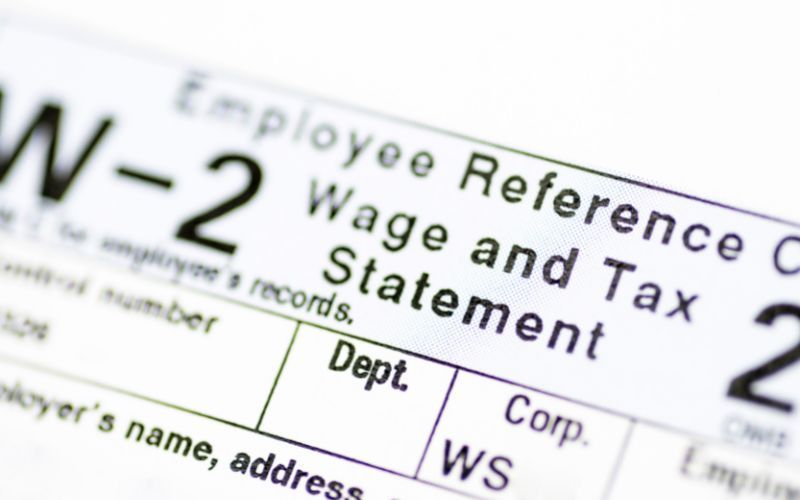Last Updated: June 28, 2024
Defend Your Earnings with a Competent Lawyer

Disclaimer: We are not qualified legal or tax professionals and are not giving advice. Always speak with a qualified professional before making any legal or financial decisions.
When dealing with debt, a skilled wage garnishment attorney can be your best ally. Income withholding occurs when a court order allows a creditor to take money directly out of your paycheck to repay a debt. This happens after creditors have taken you to court and received a judgment. Once that judgment is in place, your employer is notified and must comply.
Interestingly, federal and state agencies don’t need a court order to garnish your wages. These garnishments typically cover back taxes, child support, federal student loans, and alimony. Understanding these processes and having professional guidance can make a significant difference in managing your financial situation.
Wage garnishment makes most people feel helpless, and your financial situation can turn dire. There is help available though! The solution is to find an attorney to help you protect your rights and stop the garnishment.
Don't want to read through? Speak to a debt specialist right now.
Understanding your wage garnishment rights
Consumers are protected by the federal Consumer Credit Protection Act (CCPA). A state may add additional protections, except for wage garnishment by federal agencies.
The CCPA federal law offers the following protections against mandatory wage garnishment:
- Employees are protected against being discharged by their employers if ONE debt has caused garnishment of wages. There is no protection for two or more wage garnishment orders.
- If you have more than one wage garnishment, the CCPA doesn't specify which one takes priority. This can be confusing, but a wage garnishment attorney can help clarify how other federal or state laws determine the order of priority.
- The CCPA limits the percentage of disposable earnings that can be garnished. These can not be exceeded.
- The CCPA sets the maximum amount garnish-able in any workweek or pay period, except in garnishment for support, bankruptcy, or any state or federal tax. The maximum garnishment is the lesser of 25% of the employee’s disposable earnings, or disposable earnings are greater than 30 times the federal minimum wage.
- In the case of court orders for child support or alimony, garnishment laws state that up to 50% of a worker’s disposable earnings can be taken if the worker is supporting another spouse or child, or up to 60% if the worker is not. Consulting with a wage garnishment attorney can help manage these complexities, especially when support payments are more than 12 weeks late, which subjects them to an additional 5% garnishment.
- For non-tax-related garnishments by the federal government, up to 15% of disposable earnings can be garnished. State law does not cover these federal repayments.
CCPA Definition of Earnings:
Earnings are defined as compensation paid or payable for personal services, including:
- wages
- salaries
- commissions
- bonuses
- periodic payments from a pension or retirement program
- payments from an employment-based disability plan
- tips claimed on federal taxes
Lump sum earnings where the employer makes a lump sum payment for the employee’s services include:
- commissions
- discretionary and nondiscretionary bonuses
- productivity or performance bonuses
- profit sharing
- referral and sign-on bonuses
- moving or relocation incentive payments
- attendance, safety, and cash service awards
- retroactive merit increases
- pay for working during a holiday
- workers’ compensation payments whether paid periodically or in a lump sum
- termination pay
- severance pay
- payments from insurance settlements
The CCPA’s garnishment limitations protect lump-sum payments in exchange for personal services rendered. Lump-sum payments not related to personal services rendered are not protected.
CCPA Limitations of Garnishments
The CCPA bases garnishment on your disposable income, which is what remains after legally required deductions like taxes, Social Security, Medicare, and retirement withholdings. Taking counsel from a wage garnishment attorney is important to understand exemptions that protect your income. Each state sets its own rules, so exploring a claim of exemption is advisable.
Optional deductions include wage assignments, union dues, health insurance, charitable contributions, savings bonds, and non-mandatory retirement plan contributions.
Why You Should Consider a Wage Garnishment Attorney
Understanding the complexities of wage garnishment regulations can be overwhelming. Adhering to these rules requires meticulous attention to detail, and hiring a specialized lawyer not only protects your interests but also ensures compliance with all legal requirements.
A wage garnishment attorney can help identify any errors or illegal actions taken by the creditor or debt collector, which is crucial as mistakes in the garnishment process can lead to unjust financial burdens. They can review your case, uncover any discrepancies, and provide the necessary defense to protect your income.
Negotiating with creditors
Most creditors have a legal team representing them, making it crucial to have your own legal representation to protect your rights. Creditors and debt collectors can make mistakes, and a wage garnishment attorney can identify those errors more quickly than you might be able to on your own. Furthermore, negotiating a payment plan or debt settlement can help you avoid garnishment altogether. A skilled lawyer can assist in these negotiations, ensuring you secure the best possible terms.
Filing an appeal to stop a wage garnishment
If you have had a garnishment order against you, you may be able to appeal it. The process can be complex, involving specific legal criteria and documentation. A wage garnishment attorney can help you explore these different options by assessing your situation, preparing the necessary paperwork, and presenting a compelling case in court. Their expertise ensures that all legal requirements are met and increases the likelihood of a successful appeal. They will know exactly what evidence you need to provide to prove your case and protect your financial interests.
Motion to Set Aside
If there is evidence that your garnishment was based on reasons like fraud, falsifying documents or evidence or providing false testimony, you can ask that the garnishment order be set aside. If the court agrees, a hearing will be scheduled to address these concerns. This is a crucial time to have the legal representation of a wage garnishment attorney, as their expertise can significantly impact the outcome.
Show Hardship
If you can show that the wage withholding is causing severe financial hardship, the court may stop it. However, you must provide income and asset statements as well as all monthly expenses. Compiling and presenting this evidence effectively can be challenging, but a wage garnishment attorney can provide crucial assistance in this process.
Excessive Garnishments
If the garnishment exceeds the CCPA limits, you can show the court that the garnishment exceeds 25 percent of your disposable wages or 30 times the minimum wage. You'll need paycheck stubs and bank statements. In these cases, a wage garnishment attorney can certify that the garnishment amount will be reduced rather than vacated by presenting a strong case and the necessary documentation to the court.
Non-seizable Assets
If protected income is part of the garnishment and you can prove it, the court may either change or vacate your judgment. You will need to file a claim of exemption. Consulting with a wage garnishment attorney can help verify that your protected income is correctly identified and presented to the court, increasing the likelihood of a favorable outcome.
Bankruptcy
Your final option to get a judgment vacated is to file for bankruptcy. However, not all judgments can be overturned by taking this step. It's essential to consult with a bankruptcy attorney to understand which judgments can be affected by bankruptcy. Talking to a wage garnishment attorney can also provide a comprehensive view of your financial situation, helping you make the best decision for your circumstances. Learn more about the process and implications by reading about
how bankruptcy works.
The Odds of Reversing a Garnishment
There are no statistics available that define if appealing your wage garnishment order will be stopped. However, if you can prove that the garnishment proceedings were wrong or are onerous, a wage garnishment attorney would be your best bet to stop wage garnishment.
FAQs
Our Conclusion
Wage garnishment can be very unpleasant. Depending on your situation, between 25% and 60% of your disposable income can be taken from you and given to your creditors or the government.
Both creditors and governmental entities can make mistakes, and these errors can be corrected. The CCPA is a federal law that protects you and your income from excessive garnishment. You can potentially reverse or reduce the amount being withheld from your paycheck by hiring a wage garnishment attorney to protect your rights and your financial situation.
If you have debt and want to talk to one of our debt specialists, get a FREE consultation today!
*Disclaimer: Pacific Debt Relief explicitly states that it is not a credit repair organization, and its program does not aim to improve individuals' credit scores. The information provided here is intended solely for educational purposes, aiding consumers in making informed decisions regarding credit and debt matters. The content does not constitute legal or financial advice. Pacific Debt Relief strongly advises individuals to seek the counsel of qualified professionals before undertaking any legal or financial actions.
✔ Accredited by Better Business Bureau with BBB A+ rating (4.93 rating and 1678 reviews)
✔ US News and World Reports and Bankrate ranked Pacific Debt Relief as one of “The Best Debt Relief Companies of 2024”
✔ 6.9 star rating by BestCompany.com (over 2379 client reviews)
✔ 4.8 star rating by TrustPilot based (over 1613 verified consumer reviews)
✔ ConsumerAffairs.com Accredited (over 544 verified reviews with an average rating of 5 stars)
✔ A Top 10 Rated Compan by TopTenReviews.com , ConsumersAdvocate.com and Top10debtconsolidation.com
✔ 4.6 star rating by Google (229 client reviews)
✔ 100% rating by SuperMoney (9 client reviews)
Reduce Your Credit Card Debt By Up to Half

BBB Reviews | 4.9/5.0 Rating









 Do Not Sell My Personal Information
Do Not Sell My Personal Information